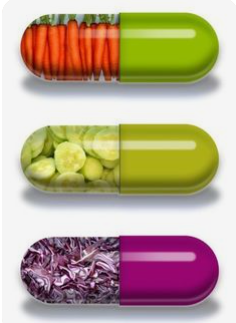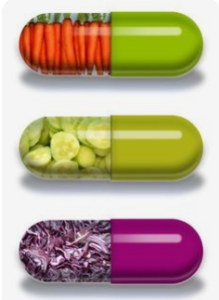Vitamin and Mineral Deficiency in The Elderly
Vitamin and mineral deficiency in the elderly is a common yet challenging issue. As our bodies age, our lean body mass and metabolic rate decrease. Simultaneously, our bodies no longer effectively absorbs certain vitamins and minerals leading to deficiency. As elderly adults tend to have smaller appetites this results in a lower calorie intake making This renders them likely to develop a vitamin and mineral deficiency.
Elderly people’s lifestyle habits differ from those of younger people. This in turn affects what foods they eat. Many take less exercise and are less physical active reducing their need for a high caloric intake. This also means fewer essential vitamins and minerals are absorbed. This eventually causes vitamin and mineral deficency.
Over a prolonged period of time this deficiency can increase the risk of developing osteoporosis, heart disease and other chronic diseases increases.
Vitamin and Mineral Deficiency in the elderly – Contributory Factors
Certain factors contribute to the amount of nutrients the elderly gain through diet including;
- Forgetfulness and growing cognitive impairments, especially dementia.
- Lack of energy or inclination to prepare healthy meals.
- Living alone.
- Budget. A fixed or lower income may dictate how much can be spent on food.
- Side effects from medication that may alter how well the body absorbs certain nutrients.
- Medication interactions with certain vitamins and minerals.
- Gastrointestinal issues, whether from a GI tract infection or surgical procedure.
- Smoking and drinking excess alcohol.
- Hormonal and neuro-transmitter changes that affect how hunger and fullness are experienced.
Frequently lacked Vitamins and Minerals
Older adults are more likely than younger people to experience the following deficiencies:
- Calcium This mineral contributes to bone density and strength. Calcium deficiency may impact mobility and exacerbate fall-related injuries.
- Vitamin D Works in conjunction with calcium to improve bone density.
- Magnesium Influences certain body processes, including blood pressure regulation.
- Vitamin C Contains antioxidants, affects wound healing and protein absorption.
- Vitamin B6 Helps with protein absorption and can influence cognitive functioning.
- Vitamin E Also known for its antioxidants, Vitamin E is key for the immune system.
- Vitamin B12 Essential for creating new blood cells and nervous system functionality.
- Folate Also called Vitamin B9, folate assists in the production of red and white blood cells. A deficiency may contribute to the diagnosis of anemia in older adults.
- Potassium Contributes to stronger and healthier bones, helps to reduce blood pressure and lessens the risk of kidney stones.
- Fibre Affects how well food moves through the digestive system and helps reduce the risk of heart disease.
- Omega 3 Has been known to reduce the progression of rheumatoid arthritis, Alzheimer’s disease, macular degeneration and may improve cognitive health.
Effects of Dietary Deficiency in The Elderly
Vitamin and nutritional deficiencies can take months or years to develop. The most common nutrition-related conditions include:
- Anaemia Many elderly people who are hospitalised for another reason are often diagnosed with this deficiency. Anaemia can occur together with inflammation, chronic diseases and protein-absorption issues.
- Cognitive Impairment A Vitamin B12 deficiency usually manifests as cognitive impairment. This is often in conjunction with gastrointestinal issues related to absorption and infection. Anaemia and folic acid deficiency in older adults might be confused with dementia with signs of memory loss, confusion, delayed processing and depression.
- Vitamin D Deficiency Elderly people with lower levels of Vitamin D in their blood tend to have lower bone density. The best way of creating Vitamin D is the exposure to sunlight and a lack of it can lead to more frequent fractures and osteoporosis. This is a viscous circle though as many people with a Vitamin D deficiency are house-bound, unable to access fresh air and sunlight without help.
To address these issues, doctors often recommend fewer highly processed foods, saturated fats and salt in favour of more fruits, vegetables, whole grains and sources of fibre
People may also be steered toward vitamins and supplements to target particular nutrients. Many meal supplements such as Complan and Fortic contain a full-range of nutrients.


